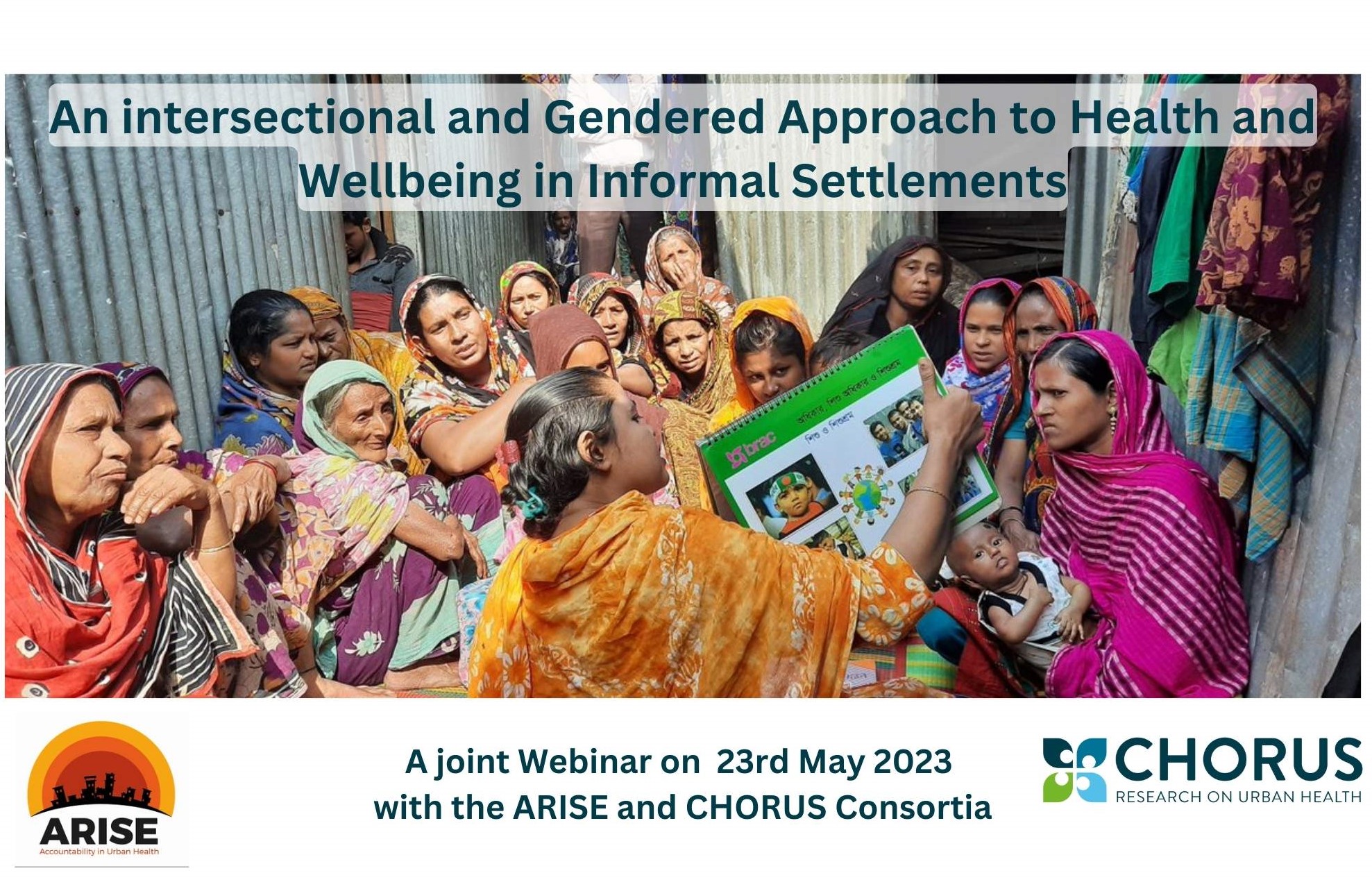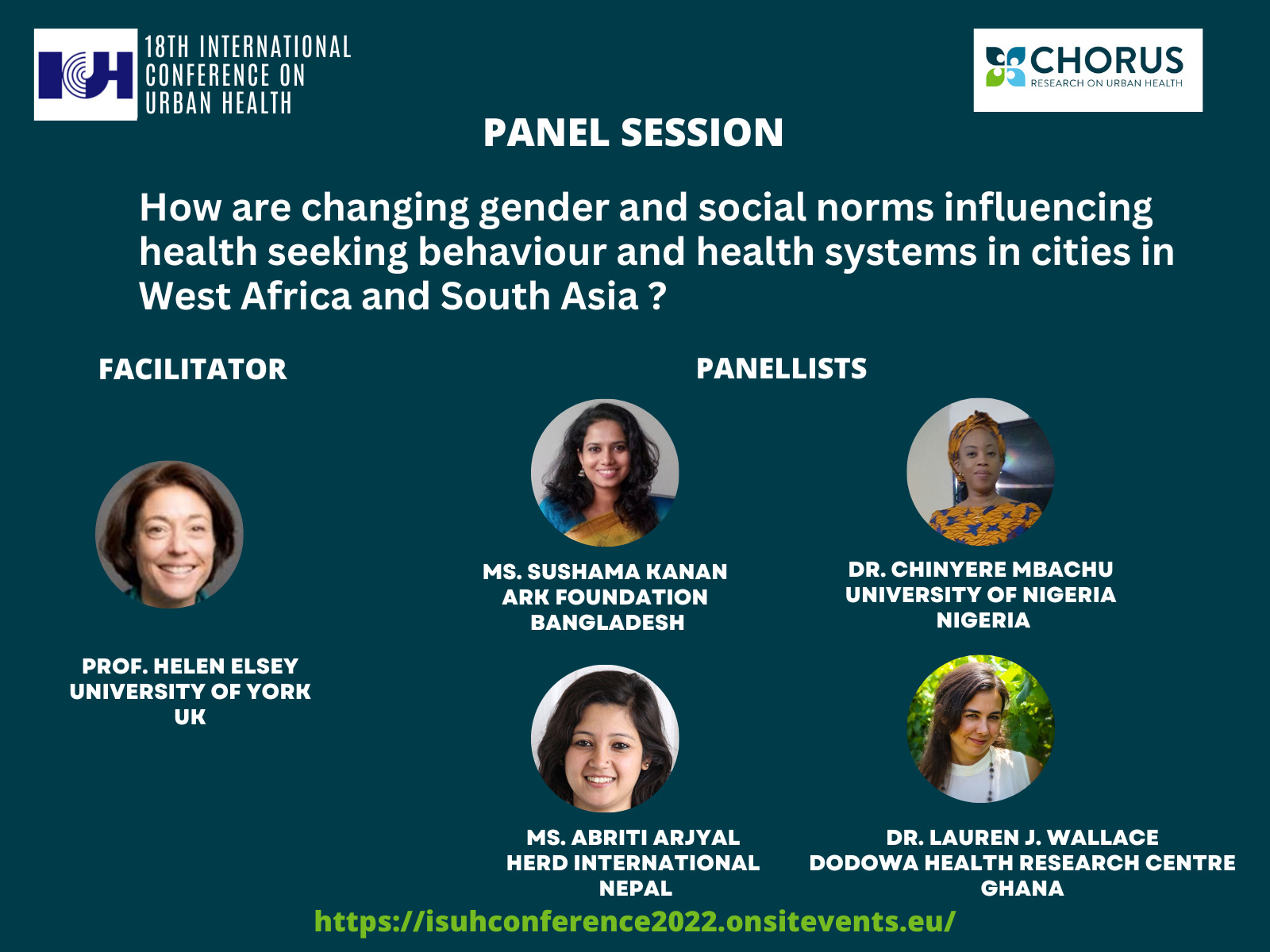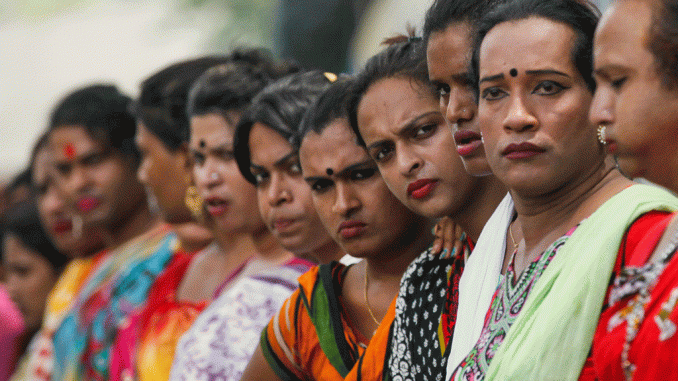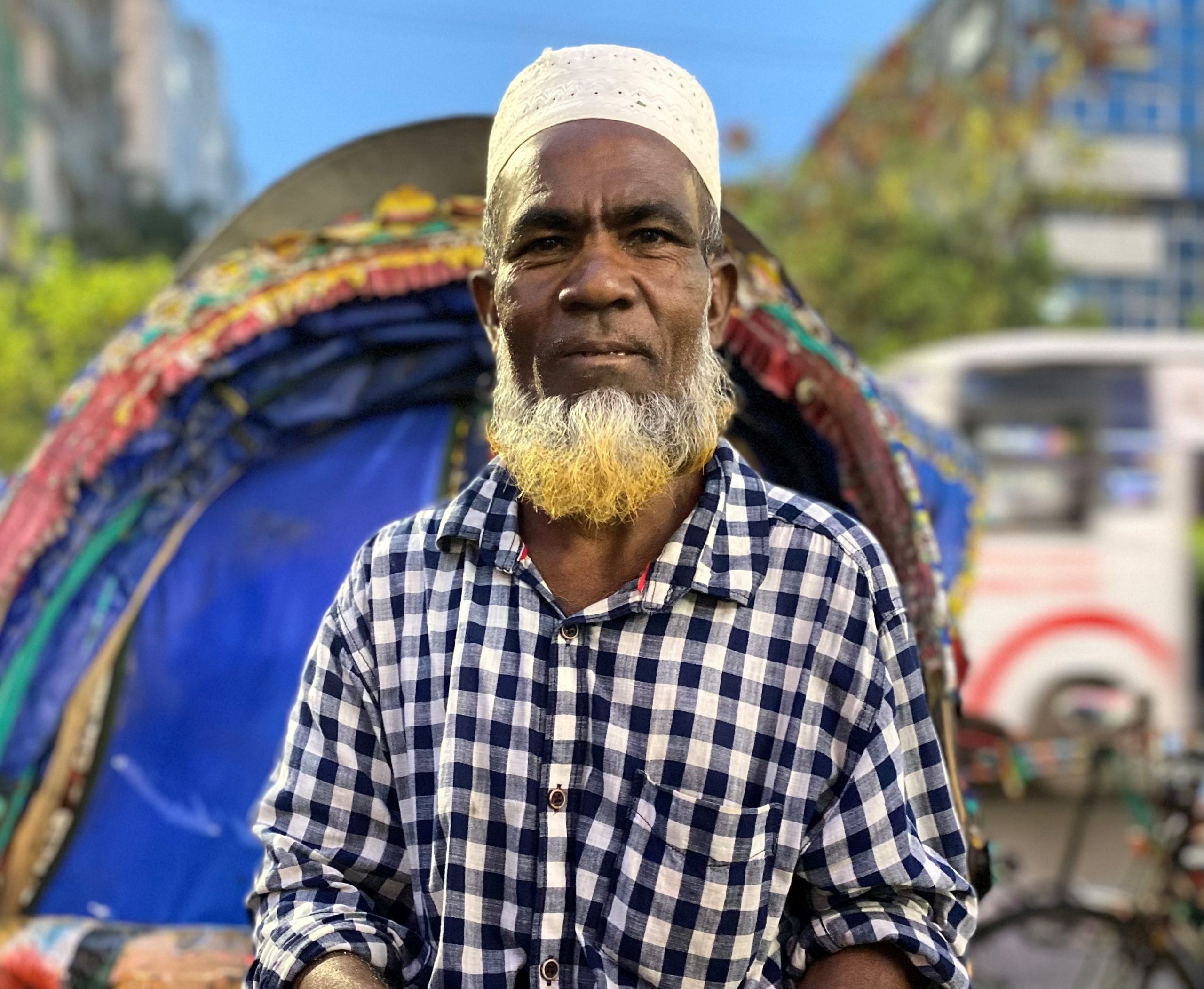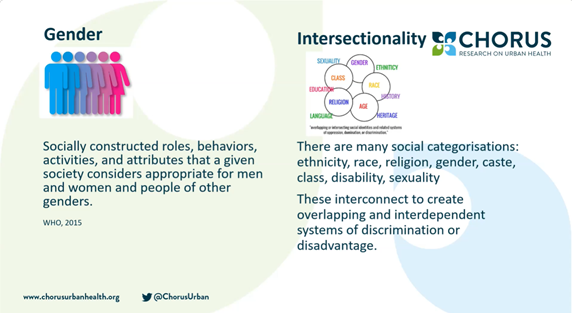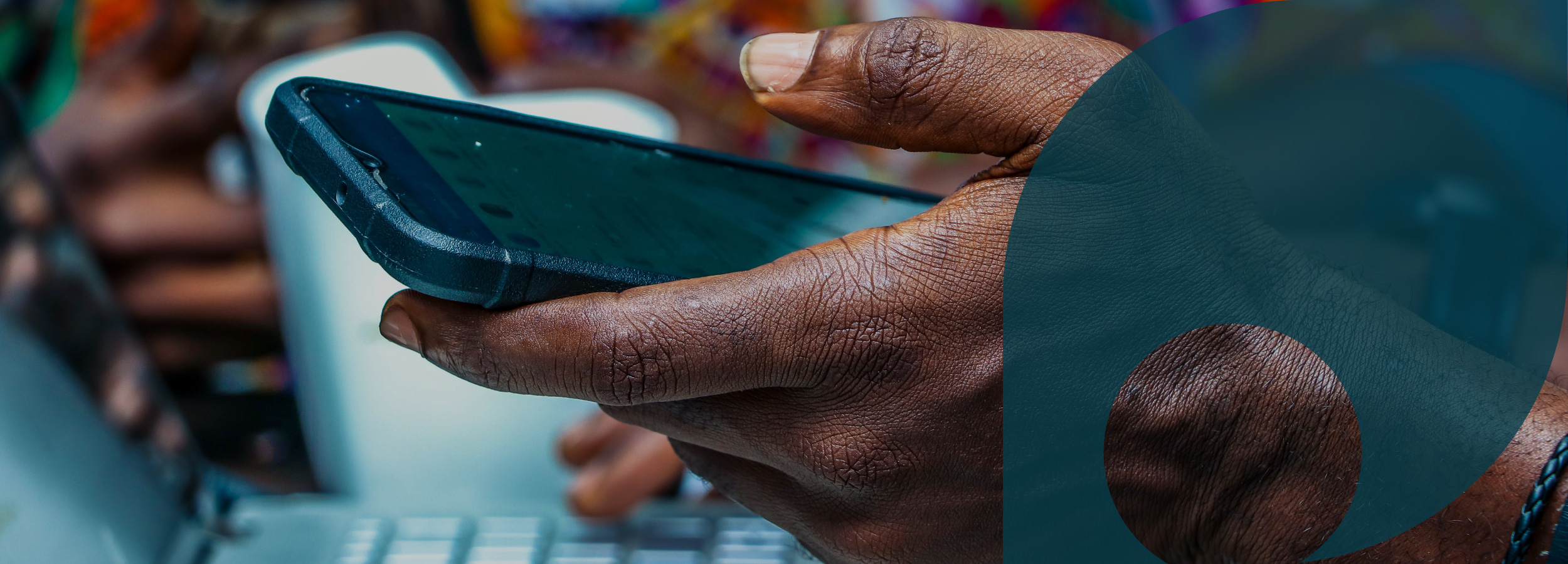
GENDER, EQUITY & INTERSECTIONALITY

GENDER, EQUITY & INTERSECTIONALITY
Within all the CHORUS cities, health outcomes and the health behaviours, exposures and access to quality health care which underpin them, are determined by individual and community identities. These in turn are shaped by wider social, political and economic structures and norms.
Gendered identities intersect with other social stratifiers, including disability, ethnicity, religion, caste, and socio-economic status, resulting in inequity in health and well-being. Rapid urbanisation is changing gender and social norms; and this presents opportunities to transform patterns of discrimination and disadvantage. However, differences are often so engrained within societies and embedded within structures and systems that we can become blind to their existence and the resultant inequities remain unchallenged.
These inequities can be seen both within health systems and within our own research organisations. Identifying and addressing these inequities is a core principle of the CHORUS research consortium.

